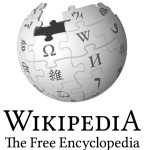It probably won’t surprise you to know that I do most of my research online. Sure, I have a mini-library of actual books on big data, privacy and parenting ‘in the digital age’, but all the latest and greatest info needs to be sought in real-time. Thing is, I am not alone. Many people, especially kids, use the internet for the bulk of their research. So, is it reliable? Yes. And no.
News – Hot of the Press
By ‘news’, I am referring to the many items that you may see in a newspaper; Politics, tragedies, local issues, celebrity gossip, opinion pieces. The internet is rife with sites that want to be the first to give you this information. Since there is so much competition, these sites compete on two levels:
- Quantity of information
- Speed of reporting
Though there are some great articles online, the end result of competition is still a lot of junk. As an example, I have a Google Alert set on several search terms including “Facebook Privacy Settings”. This means I get a daily email with many published articles that have that in the title or subject matter. If a major story breaks then I will get an email listing those articles from the major sites (Forbes, International Business, NY Times). The next day, I get more outlets reporting the same story. This continues to trickle down for about a week to smaller sites. What is interesting is how the story starts to veer off reality. Some of the secondary sources are recaps of the originals, some are opinions, but some are blatantly wrong and likely written by writers who don’t actually understand the subject matter. Last year when Facebook changed a complicated policy involving teens, I found conflicting stories amongst the newspapers on what the change involved. I went back to Facebook itself and read the fine print only to discover that 70-80% of the versions of the story that were out there were actually incorrect. I was shocked at the inaccuracy but it was a good reminder for me to know which sources I could trust.
Jimmy Kimmel Proves the Point
A great example of News sources jumping on the band wagon, are reports of the latest ‘cool viral video’. Not once, but twice, Jimmy Kimmel has set them up. The first time a video was published of a girl twerking in a handstand when she falls, lands on a table of lit candles and catches on fire. Everyone was running this video. Then Jimmy Kimmel announced that he had actually staged the entire thing. Here is the clip of all of the news stations reporting on it:
The second time, Kimmel had an Olympic athlete in Sochi tweet that she had seen a wolf roaming the halls in the athletes dorm. Here is the clip of this tom-foolery:
That’s a Fact
Want to know more about cheetahs or looking for a historical account of the catalyst of WW1? This type of research should be easier because science and history are based so much on fact. My daughter recently had to do a project on an animal and we were told the students could use websites like National Geographic but not Wikipedia. For those new to Wikipedia, it is an online collaborative encyclopedia. That means that anyone in the world can technically add data to a page BUT it also means that many people are watching over your shoulder and will hopefully correct that data. I use it often, especially for a quick definition of something I have never heard of. It is said to be ‘mostly correct’ but does contain errors. For the sake of my daughter’s project, we used the good ‘ol library and took out 6 books. Some on the Great White Shark (her chosen animal) and some on Sharks in general. I read them all with her and was interested to see how many differences there were across them. Some of the general shark books reported ‘facts’ about all sharks that only apply to some of them. Several of the Great White books had conflicting ‘facts’ from one to another. So even written sources are only ‘mostly correct’.
Tips and Lessons Learned
Need a fact? Try the original or academic source
Government news? Try the government websites. Need information on a medical condition? Try the universities or hospital sites. Every step you take away from an authority figure, the more likely it is that there could be errors in that article.
Want accurate news? Find a few major institutions you trust
I have found that there is still a high level of integrity in the reporting by major news sources. National news stations or online papers tend to be well written by experts in their fields.
If in doubt, look for a second opinion
If you need a solid fact and you are not sure if your current source is reliable, try cross-referencing with a few others. You would likely use multiple books as resources for a topic, so makes sense to also use multiple websites.


Leave a Reply